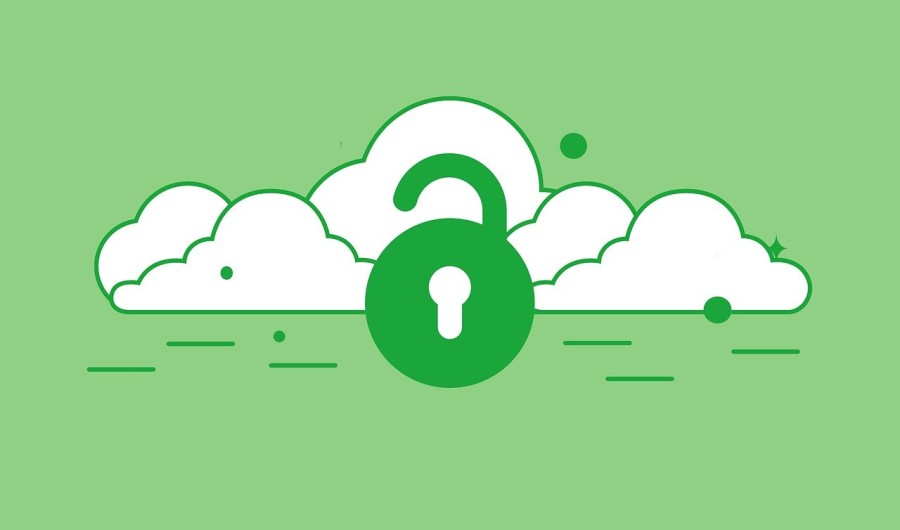
Enhancing Website Security Using Managed DNS
Your DNS records are critical for maintaining your online presence. These records translate a user-readable domain name into an IP address your computer can use to connect to specific servers. Owing to the fact of how important they are to resolving domain names and redirecting users to the right destinations, DNS records make up a crucial component of your website’s security. You should ideally implement measures that safeguard their security, and one of the best ways of doing so is by using managed DNS services.
What is Managed DNS?
Managed DNS services are provided by companies that allow your traffic to flow through their infrastructure, with their servers providing the DNS resolution services you need. This means you have one secure and central hub for maintaining, configuring, and securing your DNS records.
These companies make it easy for you to change these records, add domain names to your account, ensure the security of your website and associated assets, and much more.
Their role in ensuring website security is especially important, so we will look at how they help with this below.
Managed DNS Protects Your Websites from DNS Spoofing
DNS spoofing happens when a malicious attacker changes your DNS records so that your domain name points to a different IP address and, therefore, a different destination. The effects of this can vary from simple frustration from visitors who end up in a destination they did not intend to visit to loss of customer or user data!
One of the most effective and successful ways to prevent this is through implementing the Domain Name System Security Extensions (DNSSEC). This protocol signs all data to ensure it is authentic, consequently adding another layer of protection to your online assets.
DNSSEC uses cryptographic signatures to protect against unauthorized changes to your DNS data, ensuring you have a secure and trustworthy system that resolves your domain names.
A managed DNS service provider can help you implement this protocol and make it harder for malicious actors to spoof your DNBS records. This results in much more secure websites and better user experience.
Managed DNS Services Provide Crucial Monitoring
Even when you protect your DNBS records, malicious actors could still try to spoof or interfere with them in some way. For this reason, managed DNS service providers ensure continuous monitoring of any activity on your DNS for anomalies and suspicious changes. Doing this makes it easier to identify potential DNS spoofing attacks and issues much faster before malicious actors can do any damage.
Even in cases where an attempt is successful, which is very rare, the service provider can repair the damage because they know when and where it occurs. This is because they maintain backups and configuration files that make it easy for them to know what was changed so they can ensure your DNS always has the right settings and points to the right destinations.
They Reduce Downtime
Successful DNS spoofing attacks can cause your website to be offline. When this happens, you might focus on getting the website back up and running and forget that a malicious account could be using this opportunity to access your server. The good news is that managed DNS service providers also provide redundant infrastructure with geographically separated servers.
This means they can take a compromised server offline, repair the DNS, and ensure your website is online with little downtime and service disruption. Once they clear everything up, they can use their extensive logs to see where the vulnerability was and patch it to ensure something like this does not happen in the future.
Additionally, managed DNS service providers have dedicated IT and cybersecurity teams. These professionals respond quickly to any security incidents. They are also proactive in that they monitor for threats and do not wait until something has gone wrong before they take over. By taking this stance, they can minimize the potential damage, losses, and downtime caused by an attack.
Additional Proactive Threat Protection Measures
Managed DNS service providers have additional proactive protection measures in place. One of these, and one that you should always consider when choosing a provider, is DSN firewalls. These options filter out malicious traffic trying to access your website. These service providers use several methods to detect such traffic, including behavior and IP analysis, and to keep your website safe.
A crucial benefit of such monitoring is preventing DDoS attacks. A Distributed Denial of Service (DDoS) attack happens when a malicious actor sends numerous requests to a website or application to overwhelm it. The result is an unresponsive server or service that essentially takes the application, website, or server offline.
By filtering traffic associated with a DDoS attack, a managed DNS service can stop this traffic from reaching the tour server, website, or application and reduce the damage the malicious actor can do.
Additionally, the service provider can block all IP addresses apart from a few belonging to those tasked with rectifying the situation. Doing this means the website or server becomes responsive again, giving you enough time to deal with the attack, find out what happened, and put measures in place to ensure it does not happen again.
Use of Threat Intelligence
Another proactive security measure these service providers implement is real-time threat intelligence assessment. Managed DNS providers have access to vast amounts of data that they can use to identify malicious actors, traffic, and IP addresses. They can then block these to block access to these threats because they can reach your website or server.
They are also always adding to their threat detection and assessment feeds, which is especially important in an age where the number of threats and attacks is increasing, and both are becoming increasingly sophisticated.
Automatic Updates
The last proactive threat detection and protection measure is automatic updates. These providers update their security measures to counter new and evolving threats regularly. They can do so using their real-time threat feeds mentioned above, or by collecting additional data from different sources.
By doing this, managed DNS service providers ensure your website is protected against all threats, including the latest ones.
Managed DNS services might seem like something you do not have to get for your business, but they may be necessary. Depending on the traffic levels, threat types, and data you handle, you might want additional server and website protection that managed DNS services provide. In addition to protecting against known and unknown threats, these services have additional benefits that all businesses can appreciate.






